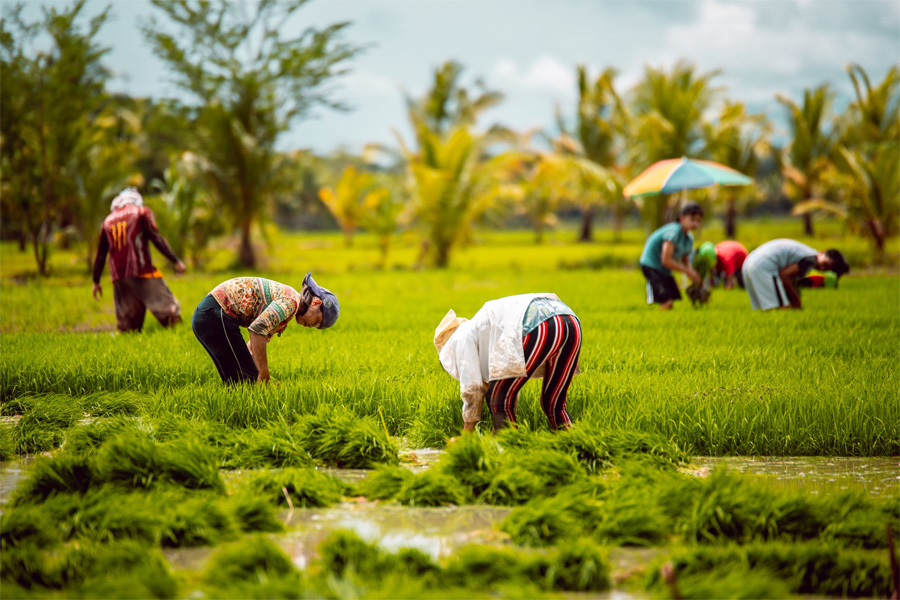Introduction
Farming is a modest yet noble job. Without farmers, the whole world will starve to death. Being someone who contributes to the production of food that feeds your fellowman is very fulfilling. Farming has been an entire profession throughout human history, providing essential sustenance for civilizations. In today’s rapidly changing world where technology and industries dominate, the question arises: Is farming still a good profession? This article explores the advantages, challenges, and fulfillment of pursuing a farming career.
Advantages of Farming as a Profession
Farming as a profession offers numerous advantages that make it an appealing career choice for many individuals. From job security and stability to the potential for financial success and the connection with nature and the environment, farming provides a unique and rewarding experience. Here are some critical advantages of farming as a profession:
Job Security and Stability
Steady demand for food and agricultural products: Agriculture is an entire industry that caters to the basic need for food. Despite economic fluctuations, there will always be a constant demand for food and agricultural products. This steady demand ensures job security for farmers.
Growing population and food requirements: With a continuously increasing global population, the demand for food is expected to rise. As a farmer, you play a crucial role in meeting this demand and ensuring food security. This growing population ensures the stability of the farming profession.
Potential for Financial Success
Opportunities for diversification and innovation: Farming offers various opportunities for diversification and innovation. Farmers can explore different crops, livestock, and value-added products to cater to changing market demands. By adapting to consumer preferences and embracing innovative farming techniques, farmers can increase their income potential.
Long-term investment potential: Land is a valuable asset, and farmers have the advantage of owning agricultural land, which can appreciate over time. Additionally, farmers can secure long-term productivity and profitability by implementing sustainable farming practices and maintaining soil health.
Connection with Nature and the Environment
Sustainable and regenerative farming practices: Many farmers are adopting sustainable and regenerative farming practices prioritizing environmental conservation. These practices focus on soil health, water conservation, biodiversity preservation, and reduced chemical usage. By implementing these methods, farmers contribute to a healthier environment and mitigate the impacts of climate change.
A chance to work outdoors and appreciate natural beauty: Farming provides an opportunity to work outdoors amidst nature’s beauty. Farmers get to witness the changing seasons, observe the growth and development of crops, and enjoy the tranquillity of rural landscapes. This connection with nature can lead to a sense of fulfillment and a healthier lifestyle.
Challenges and Considerations in Farming
Physical Demand and Hard Work
Farming is not for people who lack courage. It involves long hours of hard work, often under challenging conditions. Farmers wake up early, tend to their crops or livestock, and perform physically demanding tasks throughout the day. From plowing fields to harvesting crops or caring for animals, the physical demands of farming can be exhausting. However, this dedication and perseverance allow farmers to overcome these challenges and continue their noble profession.
Market Volatility and External Factors
Farmers face market volatility and external factors that are often beyond their control. Weather conditions and climate play a crucial role in agricultural productivity. Droughts, floods, or extreme temperatures can negatively impact crop yields and livestock health. Farmers must also navigate price fluctuations, changing consumer preferences, and market unpredictability. It requires adaptability, resilience, and mitigating risks to thrive in such an environment.
Knowledge and Skill Requirements
Successful farming requires a broad range of knowledge and skills. Farmers must stay updated with the latest agricultural practices, technology, and research advancements. Farmers need to understand their craft deeply, from soil management and crop rotation to animal husbandry and pest control. Moreover, modern farming often requires business and financial management skills to run a profitable operation. Continuous learning and adaptation are vital to staying competitive in the ever-evolving agricultural industry.
Farming as a Fulfilling Lifestyle
Independence and Autonomy
One of the most appealing aspects of farming is its sense of independence and autonomy. Farmers have the freedom to make decisions that shape their destiny. They are not tied to the constraints of a traditional office job but instead, work directly with the land and nature. This level of autonomy allows farmers to be their bosses and take pride in their work.
Strong Community and Support Networks
Farming fosters a strong sense of community and support networks. Farmers often collaborate with other farmers, sharing knowledge, experiences, and resources. Cooperative initiatives such as community-supported agriculture (CSA) programs and farmer’s markets allow farmers to connect with consumers directly. The farming community understands the challenges and triumphs of the profession, offering emotional and practical support to fellow farmers.
Conclusion
In conclusion, farming remains a good profession with its unique advantages, challenges, and fulfilling aspects. Despite the physical demands, market volatility, and knowledge requirements, farming offers job security, potential financial success, and a deep connection with nature. The independence, autonomy, and strong community support make farming a rewarding lifestyle. Aspiring farmers should embrace innovation, continuously learn, and be resilient in facing challenges. Farming is not just a profession but a way of life that sustains communities and feeds the world.
Frequently Asked Questions
- What are some common misconceptions about farming as a profession?
– Some misconceptions include outdated or unprofitable farming, which is not valid in today’s context. - How can farmers cope with the challenges of climate change?
– Farmers can adapt by implementing sustainable practices, investing in technology, and diversifying their crops to withstand the impacts of climate change. - Are there opportunities for technological advancements in farming?
– Absolutely. The agriculture industry is embracing precision farming, drones, and data analytics technology to improve efficiency and productivity. - Is farming a profitable profession in the modern era?
– Yes, with the right strategies, market knowledge, and innovation, farming can be a profitable profession in the modern era.


Comments 1
Wow, attractive website!